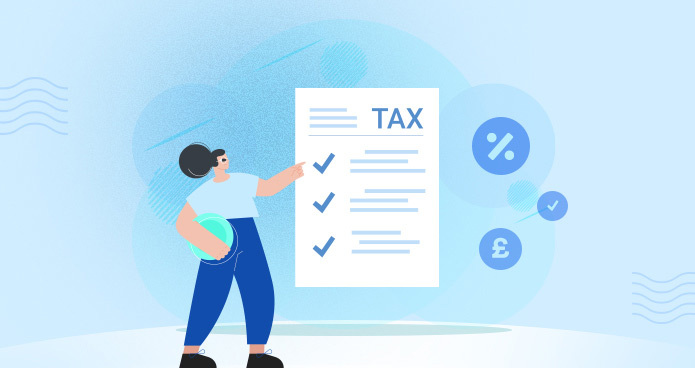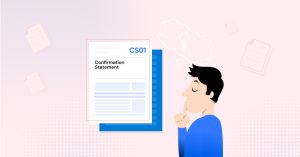What is a Tax Code BR?
Tax code BR is the most commonly used tax code in the UK. It stands for “Basic Rate” and it is the rate you are taxed at the 2022/2023 tax year, this rate is set at 20% of your annual income.
Having a tax code BR will affect your take-home pay as it will be deducted from your gross salary. This means that if you earn a certain amount, some of this money will go to the government in taxes. In other words, you`re exceeding the personal allowance (£12,750) for the year.
For example, if your annual income is £30,000 and you are on the Tax Code BR, you will be taxed 20% of this amount which is £6,000. This means that in reality, only £24,000 will go to you after taxes have been deducted.
Your 1257L code will be used for other types of income, such as rent or investments. The last letter in the code stands for ‘L’ which means you are eligible to receive the full personal allowance. This is the amount that is not taxed and it goes up each tax year, currently set at £12,750 for 2022/2023.
The reasons why you might have tax code BR is because you are exceeding your personal allowance or if you have more than one source of income. It`s important to know what kind of money is being taxed and how this will affect your take-home pay.
What happens if I have more than one source of income?
If you are earning income from more than one source, it is likely that your tax code will be different for each job. This is because if you are earning above the personal allowance amount, some of this money will need to be taxed at the basic rate.
For example, if you had two jobs and both were paying over the personal allowance amount, then it is likely that you would be taxed at the basic rate for one and receive your full personal allowance for the other.
If you have more than one source of income, for example, a salary from your job plus rental property income, then the tax code BR will apply to each of these sources separately. This means that if both incomes exceed the personal allowance (£12,750), you will be taxed in the Tax Code BR rate on each source of income separately.
Why should I be on a Tax Code BR?
If you are earning more than £12,750 in the 2022/2023 tax year, then you will be placed on a tax code BR. Having a tax code BR means that you are paying the set rate of 20% on your income. In some cases, it may be beneficial for you to be on a tax code BR as this could result in a lower amount of tax paid on your salary.
Can I get a Refund If I Paid too Much Tax on Br Code?
If you have paid too much tax on your BR code, then you may be able to claim it back. You can do this by submitting a tax return or asking HMRC for a refund. It`s important to make sure that all of your income is accounted for as any unaccounted-for funds will not be refunded.
What Happens If My Tax Code BR is Wrong?
If your tax code BR is incorrect, then you may be paying too much or too little in taxes. It`s important to check with HMRC if there are any discrepancies in your tax code. You can do this by submitting a query through the HMRC website or contacting them directly.
Conclusion
Tax code BR is an important factor to consider when working out your taxes. It affects the amount of tax you pay on your income and is applicable if you earn over the personal allowance of £12,750 for the 2022/2023 tax year. It`s important to make sure that your code is correct as mistakes can lead to problems with payments. Additionally, it may be beneficial for you to be on a tax code BR as it could result in a lower amount of taxes.
If you have any questions about your tax code BR, then it`s best to contact HMRC directly for advice. They will be able to provide you with the most accurate and up-to-date information regarding your taxes.













